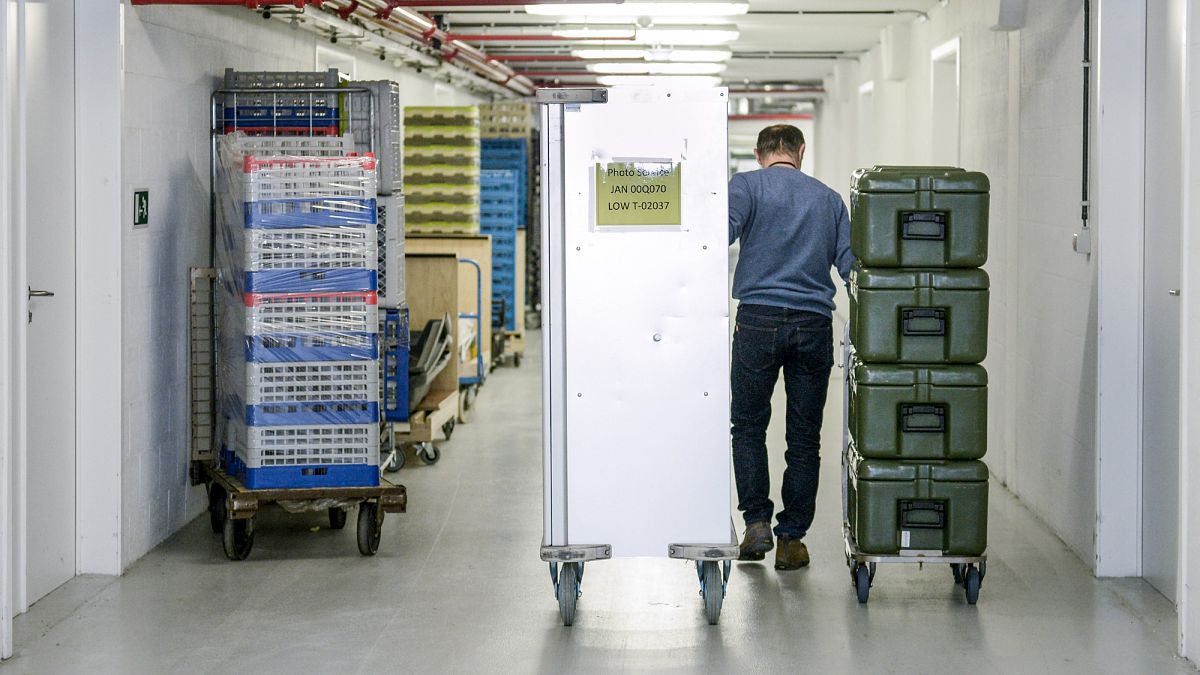The European Parliament’s key catering tender holder withdrew because it struggled to make the work profitable, according to sources Euronews has spoken to, leaving essential workers at the institution concerned for the safety of their jobs.
The European Parliament outsources various internal services such as management of cafeterias, canteens and office cleaning to private companies.
But the unprofitability drove the company running Parliament’s food services, Compass Group, to prematurely end its contract. The catering and hospitality multinational will operate until 30 June and hasn’t pitched to renew its tender for the main staff canteen, according to three people familiar with the situation.
Compass has operated within the institution since 2015 and decided not to continue after the Parliament failed to respond to a request for increased subsidies attached to its contract, according to the people.
Food services in the institution are currently outsourced to Compass, but new tenders are divided into three lots: with the main canteen distinct from MEPs catering and bar services.
Compass has pitched for the latter two and winners of new tenders for the three services will be announced this week.
“Since the end of COVID, [Compass] has experienced significant losses as a result of the pandemic, and we’ve had to gradually recover. Things were never quite the same after that. Parliamentary activities also resumed gradually – it wasn’t an immediate return to normal,” a person familiar with the matter said.
“We registered roughly €60,000 of loss per month,” another person familiar with the matter told Euronews, claiming that the main canteen of the European Parliament in Brussels is the most unprofitable service.
New tenders lead to fears among staff
Under Belgian law, contractors taking on the tenders from the outgoing suppliers must employ the previous staff, but may after six months revise their budgets and propose a restructuring citing unprofitability.
Any company taking on the tender must maintain salary levels and food standards under Belgian rules and the terms of the contract, one of the people said, adding that any changes to the menu prices would also require permission from the Parliament.
Two of the people familiar said that new catering contracts could imply some job losses, citing lower tender values and reductions in subsidies offered by the Parliament to contractors, resulting in higher costs for the companies.
“Before the last contract, the arrangement was completely different. The previous contract operated under a mandate, meaning all expenses were re-invoiced and covered by the Parliament, including personnel and freight costs,” one of the people said.
“The Parliament is fully committed to maintaining the highest standards of service. National legislation and collective agreements on employment rights, accessibility, environment and food safety are all to be respected meticulously,” the European Parliament press service told Euronews.
“Contracts are awarded to bidders offering the best overall value based on the established evaluation criteria. Quality assessments may take into account social factors such as workforce management, training, staff well-being, and inclusiveness,” the press service added.
Cleaning services supplier ISS Nettoyage is also struggling to make the work pay, according to two people familiar with the situation. One of the people said that similar cleaning jobs in the Parliament might have taken twice the time 20 years ago, adding: “Now, our workload has tripled compared to back then, and it’s overwhelming.”
ISS’ contract with the European Parliament is due to expire as of August 2026 and it is not confirmed whether it will apply again for the tender.
“We don’t know if we’ll have more work, less work, or even if we’ll still be allowed to do our jobs after the transition. That uncertainty causes a lot of stress and fear in our daily lives,” this person said.
ISS didn’t reply to a request for comment.

